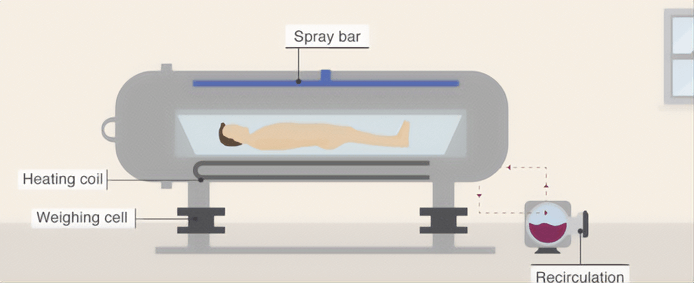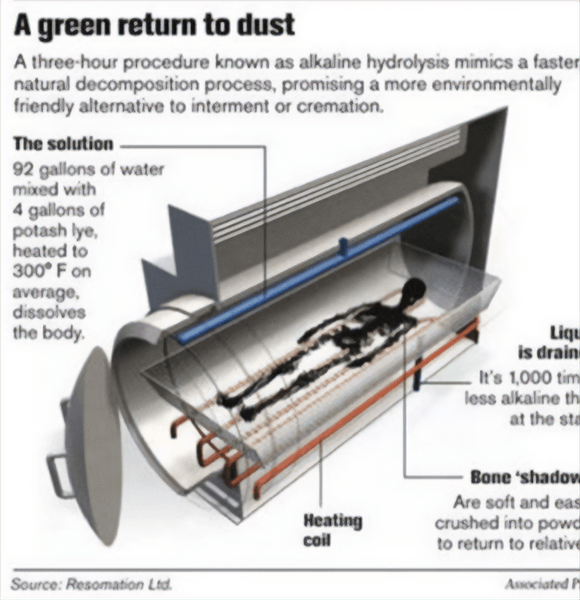- Joined
- Aug 20, 2022
- Messages
- 16,584
- Points
- 113
What on Green Earth is Water Cremation?
Dr. Emily McClatcheyAshes to ashes the green way.
Water cremation known by any other name (Alkaline Hydrolysis, Aquamation, Flameless Cremation, Resomation, Biocremation) is still water cremation. But what on earth is it? The Cremation Association of North America describes the process, developed in the 1990s, as "a water-based dissolution process for human remains that uses alkaline chemicals, heat, and sometimes agitation and-or pressure, to accelerate natural decomposition."

Is it green?
Water cremation is indeed a green! It uses a lot less energy than traditional cremation, and uses no fossil fuels: no natural gas or propane is needed in the process. Because the process is run on electricity, it produces zero emissions. Water cremation destroys embalming fluids, pathogens, and chemotherapy agents. It sterilizes implants and prepares them for recycling. The sterile effluent (the leftover fluid) is 96% water. In many states, the effluent, said to be full of amino acids and macro and micronutrients, are being used by tree farms to water and fertilize their trees. Because one water cremation process uses about the same amount of water of a single daily use of a household of four, many municipalities appreciate that the water effluent is reintroduced to the system after the process. The inorganic bone left after the process is ground to ashes just like in a traditional cremation, but the ash from a water cremation tends to be whiter and “cleaner” in appearance and texture.

Are people choosing water cremation?
One funeral home reports that when they started offering water cremations to families, 85% of them preferred them to flame cremations. Families tend to like the gentle nature of the process, and appreciate that no flame is involved. They also like that their loved one’s body stays under one roof the whole time, instead of being taken to an industrial site. Water cremation allows for loved ones to potentially be present as witnesses throughout the entire process. For those who are religious, they appreciate that Holy water can even be used in the process of a water cremation.
Why isn’t it available in Massachusetts?
I’m so glad you asked.
- First, the equipment is expensive and slower than flame-based creation. In the grand scheme of things, water cremation is a new innovation, and the price of the equipment reflects its nascency. Flame based cremation takes two hours at temperatures exceeding 1500 degrees F. Water cremation is a slower, cooler, gentler process that takes a lot longer, which impacts the productivity of the machine.
- Second, it threatens the profitability of existing businesses. As with most innovations, water cremation disrupts the longstanding iron grip of industries that have profited off dispositions of bodies, like casket companies and traditional cremation providers. In one particularly telling instance, an innovator in water cremation lobbied the Indiana government to permit water cremation in their home state. Once the issue was debated on the floor, a congressman gave an impassioned speech, calling the process undignified and inhumane. No surprise when it was later revealed that this vocal opponent owned a casket company. The fact that water cremation threatens profitability for some could explain why.
- Third, the Catholic church doesn’t like it. While there’s been no official stance from the church, individual dioceses and priests have taken issue with effluent being poured down the drain, arguing that this demonstrates a denial of faith in the resurrection of the body and fails to show respect for human remains. It is worth noting that the church does not stand to profit as much from a water cremation than from other methods of disposition.
